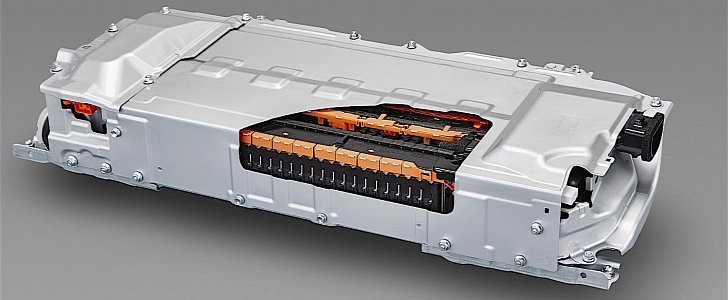For decades, the automotive industry did very little to improve the fuel it used, but put a lot of effort into making the engines that used it more reliable, more efficient, and more powerful.
With electric vehicles, the situation has changed 180-degrees. The electric motor is more or less the same as the one on the first electric Benz one hundred years ago, but the focus is on the batteries. While they have definitely evolved in the past century - particularly during the last decade - ask any EV enthusiast that still doesn't own a battery-powered car why that is and they'll mention range anxiety, long recharge times, and a high purchase price.
The industry seems to have accepted that the Lithium Ion technology is the way forward, and even though a few alternatives have been proposed by one company or the other (think of the super capacitors hybrids mentioned by Henrik Fisker which have now disappeared overnight), nothing proved to be viable enough to challenge the existing technology. Not in the least because Lithium Ion cells have also evolved during this time.
A new startup claims to have found a solution that could change the nature of the batteries that go into our EVs, as well as other devices. The company is called Ionic and it proposes we turn back to the old alkaline batteries some of us used in our Walkmans, but with a twist.
Those batteries are well-known for not being able to recharge, something an EV most definitely needs to do, but Ionic says it has found a way around that. By making a solid-state alkaline battery using zinc and manganese - two metals that are far cheaper and more abundant than the cobalt and nickel needed for Li-Ion cells - Ionic says it can recharge it 400 times, with the possibility of tripling that number after further research.
The New York Times also reports that the alkaline batteries are safer and less likely to catch fire. On the downside, at least at the moment, they have a lower energy density than the Li-Ion ones for the same weight. But Ionic has a way around that too by replacing the zinc with aluminum.
Any new revolutionary technology has to pass the test of time, but it's nice to know there might be more affordable and environmentally friendly alternatives to the Li-Ion, especially if you consider the nature of their main application in the automotive industry: EVs.
The industry seems to have accepted that the Lithium Ion technology is the way forward, and even though a few alternatives have been proposed by one company or the other (think of the super capacitors hybrids mentioned by Henrik Fisker which have now disappeared overnight), nothing proved to be viable enough to challenge the existing technology. Not in the least because Lithium Ion cells have also evolved during this time.
A new startup claims to have found a solution that could change the nature of the batteries that go into our EVs, as well as other devices. The company is called Ionic and it proposes we turn back to the old alkaline batteries some of us used in our Walkmans, but with a twist.
Those batteries are well-known for not being able to recharge, something an EV most definitely needs to do, but Ionic says it has found a way around that. By making a solid-state alkaline battery using zinc and manganese - two metals that are far cheaper and more abundant than the cobalt and nickel needed for Li-Ion cells - Ionic says it can recharge it 400 times, with the possibility of tripling that number after further research.
The New York Times also reports that the alkaline batteries are safer and less likely to catch fire. On the downside, at least at the moment, they have a lower energy density than the Li-Ion ones for the same weight. But Ionic has a way around that too by replacing the zinc with aluminum.
Any new revolutionary technology has to pass the test of time, but it's nice to know there might be more affordable and environmentally friendly alternatives to the Li-Ion, especially if you consider the nature of their main application in the automotive industry: EVs.

